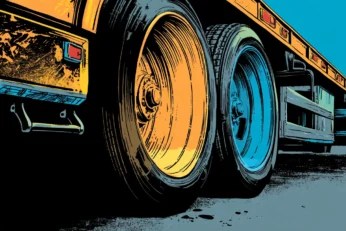
As an Amazon Associate, Modded gets commissions for purchases made through links in this post.
Painting a car can cost anywhere from $300 to over $4000, depending on the paint you use, materials you need to acquire and whether you decide to do it yourself or hire a professional. With such a wide price range, it’s often difficult to find the most high-quality and cost-efficient method of painting your car. Consider the following details so you can make the best decision for your situation.
How Much for a DIY Paint Job?
Painting a car yourself is usually the cheapest option if you know what you’re doing and already have certain resources available, but that’s not always the case. With that in mind, the range can vary between $100 and $1000. If you opt for a DIY paint job, here’s what you’ll need:
- Paint: acrylic urethane, acrylic enamel, and acrylic lacquer are the easiest types to work with for a DIY job. You can also choose between different finishes that reflect varying amounts of light, including solid, metallic, matte and pearlescent.
- Primer: you need to apply an initial primer layer so the paint sticks to the car more effectively.
- Paint Sprayer: the main tool you will use to apply the paint.
- Foam Brushes: the secondary tool used to apply paint in small hard-to-reach areas and make minor adjustments.
- Paint Trays: it’s easier to paint using a tray than straight from the can.
- Masking Tape: covers up any areas that don’t need painting or cannot be exposed to the paint.
- Sandpaper: you have to sand the preexisting paint surface before applying the new coat.
- Cleaning Minerals: you also need to wipe down your car’s surface with mineral spirits before applying the new paint.
- Drop Cloths: covers up the floors to keep your working area clean.
- Protective gear: goggles, gloves and a mask to protect yourself from harmful chemicals.
This list seems exhaustive, but you can find all of these materials online or at your local automotive/home improvement stores. If you shop wisely, the expenses can be as low as $200. The main difficulty with DIY car painting is finding a workspace with sufficient room and ventilation.
The average one-car garage should suffice, but you have to do some prep work first. Clear out the floor space surrounding your car, so you have room to place your materials and move around with ease. Next, vacuum the floor and do one final dusting. Dust can stick to undried paint and ruin the finish, so do not skip this step. Finally, make sure to keep the garage door open while you’re priming and painting.
Here are some other tips and tricks you should keep in mind when painting your car:
- Work from the top down so you can fix drips and splatters that happen along the way.
- When using the foam brush, you must apply consistent pressure to get an even coating.
- When in doubt, use less paint. Too many coats can cause dripping. If you need to add more later, you can simply make another pass with the sprayer or brush.
- Take your time between coats. Each coat needs at least six hours to dry completely.
A DIY paint job usually requires 20-40 hours of commitment, depending on the painter’s skill and any customizations they decide to make along the way. If you decide to take this route, be prepared to devote a weekend or two to the project to avoid rushing the process. All good things take time!
How Much to Hire a Professional?
The cost of a professional paint job can reach $4500, depending on your vehicle’s conditions and which services you choose. Most auto shops will give you two options:
- Basic: the most inexpensive option, as the painter only covers the car’s visible areas and doesn’t include other services, like sanding and rust removal. This service usually costs under $1000.
- Standard: the most commonly-selected option that includes sanding, rust removal and other touch-ups before the paint job, so the final product has a clean, smooth finish. This service costs from $1000 up to $4500.
Hiring a professional also affords you different paint options that are difficult to apply on your own, such as a full-body vinyl wrap. You can also rest assured that they will exercise all precautions and proper techniques while working on your car.
Some vehicles need more coats than others to cover the original color (white over blue, for example) and scratches that the servicer couldn’t buff out. The more coats, the more expensive the project will be. Your car’s size also comes into play with a professional service. Cars with larger square footage naturally cost more to paint.
With better skill and attention to detail, a professional service can paint your car in just one day, saving you a lot of time and hassle. Plus, your auto insurance will cover the costs in the rare event that the detailer makes a mistake.
Estimating the Cost
So, the question of how much to paint a car has many variables:
- Whether you decide to DIY or hire a professional
- Your car’s current condition and paint job
- Your car’s square footage
- The type of paint used
- The number of coats needed to complete the job (can be anywhere from six to 24)
- The amount of time the project takes (labor costs)
A DIY job might prove cheaper if the process goes well, but that’s not guaranteed. On the other hand, a detailer in your area might offer a cheap paint job, but the quality might be subpar. The best thing you can do is keep your options open and reach out to a handful of professionals. Ask them specific questions about the service and request to see photos of previous samples.
Which Should You Choose?
As a general rule, family cars and classical vehicles should be left to the professionals. People who own those vehicles have too much time and money at stake to attempt a risky DIY job. Cars that go through a lot of wear and tear, like all-terrain vehicles, are better suited for DIY because they can afford to withstand dust and uneven paint. Evaluate your situation carefully and explore all options in your area so you can make an informed decision!






